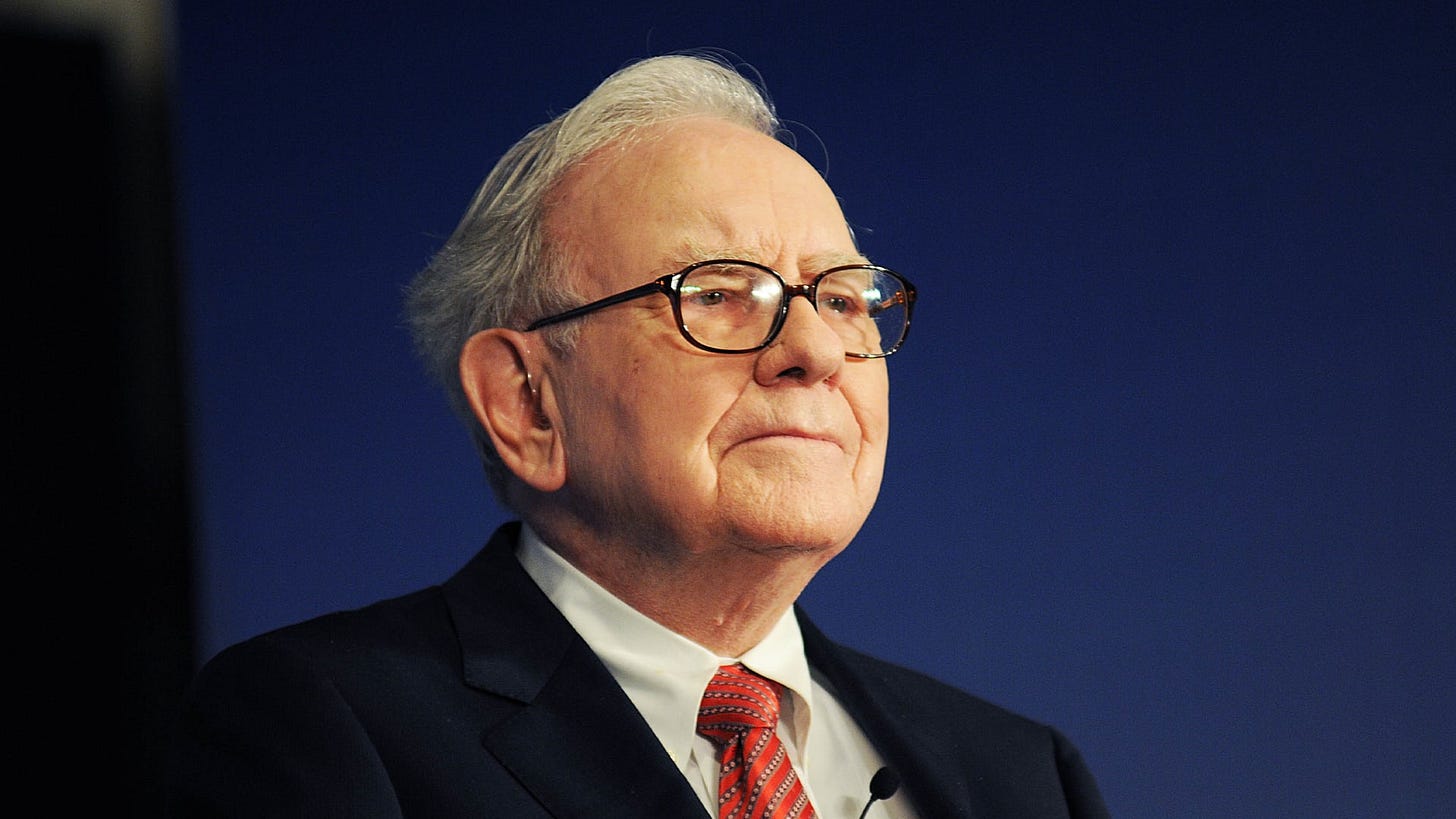Dear Readers,
I have been busy and have to apologise for the short delay in this week’s Market Mayhem. I hope that this shortened piece will still allow your to start your Monday with the past week clearly in the rearview mirror.
Kind regards,
JL
‘Float’ and Berkshire’s Alleghany Acquisition
Warren Buffett loves insurance firms because of something called ‘float’.
Insurers are paid regular premiums by clients to protect them from high-cost events, like vehicle accidents or serious illness. These events, when they materialise, result in claims that must be paid off by the insurers.
Importantly, whilst premiums are received up-front, the claims are only paid off years, perhaps decades later, which leaves insurers with mountains of investable cash during this period. This free capital is described as float, and it has driven intense competition in the industry. In fact, for most insurers, claims and expenses exceed premiums earned, so their core underwriting businesses actually operate at a loss. This can be conceptualised as the cost of float.
In view of all this, to be successful, insurers need management teams that:
Grow the underwriting business, which also grows float.
Minimise underwriting losses or, ideally, turn a profit.
Compound float over years and decades at higher-than-normal rates of return.
At Berkshire Hathaway, Buffett handles investments in stock, fixed income, and ‘wonderful’ private firms like See’s Candies, and selects skilled managers to oversee the underwriting businesses. This is the reason that Berkshire has become the ultimate compounding machine.
“In my perhaps biased view, Berkshire has the best large insurance operation in the world. And I will absolutely state that we have the best managers. Our float has grown from $16 million in 1967, when we entered the business, to $62 billion at the end of 2009. Moreover, we have now operated at an underwriting profit for seven consecutive years.”
“I believe it likely that we will continue to underwrite profitably in most – though certainly not all – future years. If we do so, our float will be cost-free, much as if someone deposited $62 billion with us that we could invest for our own benefit without the payment of interest.”
- Warren Buffett, Chairman and CEO of Berkshire Hathaway, 2010 Letter to Shareholders
Between 1965 and 2021, Berkshire’s market value has compounded at 20.1% versus 10.5% for the SPX (dividends included). The tangible book value of the firm has grown from $43 billion in 2000 to an incredible $403 billion in 2021.

However, Berkshire is not the only insurance-based conglomerate with such sound operations. Indeed, this week, it was announced that it would acquire Alleghany - which insures and reinsures in the property and casualty space - for $11.6 billion, or $848 per share. This represents a roughly 25% premium to its book value.
By deal value, Berkshire’s purchase of Alleghany trails only that of General Re. in 1998, which stood at $24.6 billion.
“Berkshire will be the perfect permanent home for Alleghany, a company that I have closely observed for 60 years. Throughout 85 years the Kirby family has created a business that has many similarities to Berkshire Hathaway. I am particularly delighted that I will once again work together with my long-time friend, Joe Brandon.”
- Warren Buffett, CEO and Chairman of Berkshire Hathaway, Press Release
Joe Brandon is an old friend indeed. He was credited with turning around General Re. in the early 2000s and his addition to Berkshire’s management squad will be of substantial value.
“Conservatism dominates our philosophy. We shun investment fads and fashions in favour of acquiring relatively few interests in basic financial, industrial, and other enterprises that offer the potential to deliver long-term value to the investor.”
The agreement includes a 25-day period during which Alleghany may seek a higher bid. The purchase price represents 8% of Berkshire’s Q421 cash pile of $147 billion, so there is plentiful powder available for further deals.
European Gas Woes
Europe sources 40% of its natural gas from Russia. But this week, plans were put into place that will drastically reduce this dependence.
President Biden announced that the U.S. would ship 50 billion cubic metres of LNG to Europe annually until at least 2030.
The EU will purchase gas from alternative suppliers as a single entity to win lower prices. It will also seek to fill 80% of gas storage facilities by November in preparation for the winter spike in consumption and cut imports of Russian gas by two-thirds this year.
Germany will attempt to end imports of Russian gas by mid 2024.
These policies will likely have a wider impact. First, the green energy transition may be temporarily upended as countries turn to fossil fuels to make up supply deficits. Second, the construction of new gas infrastructure such as LNG terminals may increase, which could benefit engineering and procurement contractors like Technip Energies. Third, and most obviously, companies which export LNG could see windfall profits, especially as prices in Europe remain elevated in the near-term due to the Russia-Ukraine crisis.

You should also know that Putin recently demanded that Europe, and other countries which have endorsed sanctions, pay for Russian gas in Rubles in an attempt to stabilise and promote trade in the currency. But it is unclear how this will work in practice, and the move could backfire if European importers retaliate with their own contract breach.



